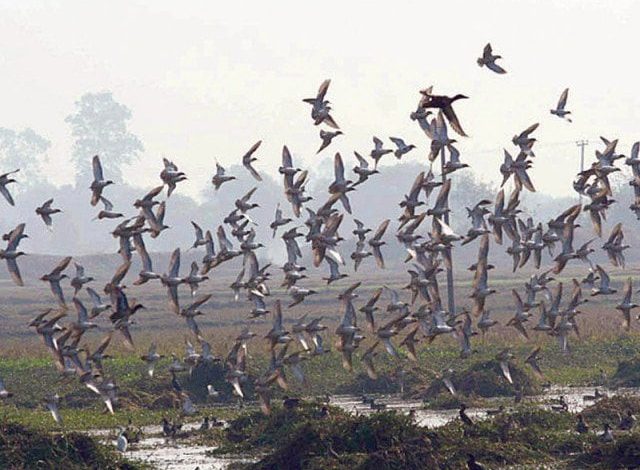Migratory birds fall victim to rampant poaching

MIANWALI:
Every year, Siberian cranes begin their long migration from the icy expanse of Siberia, flying thousands of miles across Mongolia, the Black Sea region, northern China, and then entering Pakistan through Khyber Pakhtunkhwa, Punjab, Kashmir, Sindh, and Balochistan.
From here, many continue toward Rajasthan, Gujarat, and eventually central India.
Along this vast journey, these birds are rarely hunted. They traditionally arrive safely on the soils of Punjab and Sindh each winter.
Conservationists say that if a crane—having crossed continents unharmed—ends up being killed in the lands of Shah Abdul Latif Bhittai, Waris Shah and Rahman Baba, it is a matter of deep shame.
Despite Pakistan’s reputation as a hospitable nation, the treatment of these migratory “guests” often paints a different picture.
In contrast, in Rajasthan and Indian Punjab, locals celebrate the arrival of these birds. Communities store grain year-round specifically to feed them, and formal festivals are held to welcome the flocks.
Wildlife experts in Pakistan said the situation demands reflection. “We proudly claim to be a hospitable people, yet our treatment of these guest birds tells another story,” a conservationist remarked, calling the neglect “embarrassing and painful.
Local activists allege that the Wildlife Department’s traditional complacency—combined with collusion with hunters—has enabled rampant illegal hunting at the Chashma Barrage wetlands. As a result, not only is the natural beauty of the area fading, they warn, but several rare species now face the threat of extinction.
The Chashma Barrage wetlands host thousands of migratory birds every winter, transforming the region’s blue lakes into vibrant sanctuaries.
The arrival of Siberian cranes, bar-headed geese, teals, ducks, grebes, and other rare species adds extraordinary colour to the landscape. Their flight patterns paint the sky like a rainbow, and their calls create a soothing resonance across the water.
These birds travel more than 3,000 miles to reach Pakistan, usually starting to arrive with the onset of winter and staying until February or March. But the moment they land at the wetlands, many fall prey to ruthless hunters.
Conservationists say that indiscriminate hunting is wiping out entire populations, with numbers dropping each year.
Experts argue that if the Wildlife Department abandons its habitual negligence and takes decisive action against poachers, both the natural beauty of the Chashma Barrage and the future of these migratory species can still be protected.
They warn that the situation has reached a critical point and immediate steps are not taken, the next generation may never see these magnificent birds soaring over our wetlands.



